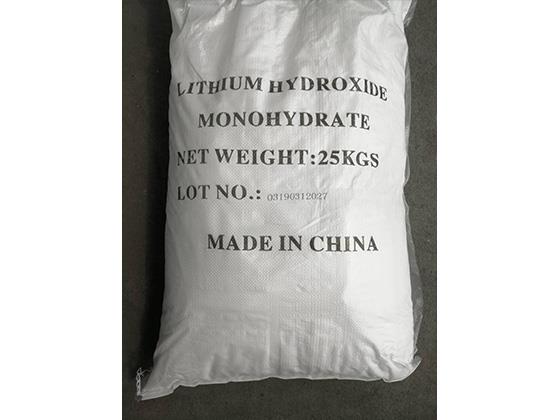行业知识
What details should be paid attention to when using lithium hydroxide?
Health hazard: This product is extremely corrosive and can burn the eyes, skin and upper respiratory tract. Oral corrosion of the digestive tract can lead to death. Inhalation can cause laryngeal, bronchial inflammation, convulsions, chemical pneumonia, pulmonary edema, and the like.
Environmental hazard: It may be harmful to the environment and may cause pollution to water bodies.
Explosion hazard: This product is not easy to burn, it is corrosive and causes burns to the human body.
Skin contact: Immediately remove contaminated clothing and rinse with plenty of tap water for at least 15 minutes. Seek medical assistance.
Eye contact: Immediately lift the eyelids and rinse the lithium hydroxide thoroughly with plenty of tap water or saline for at least 15 minutes. Seek medical assistance.
Inhalation: Move quickly from the field to fresh air. Keep the airway open. If breathing is difficult, give oxygen. If breathing stops, perform artificial respiration immediately. Seek medical assistance.
Ingestion: Rinse mouth with water and drink milk or egg white. Seek medical assistance.
Hazardous characteristics: Very corrosive. Neutralize with acid and exothermic agent. A corrosive solution is formed in the water.
Hazardous combustion products: May produce harmful toxic fumes.
Fire fighting methods: Firefighters must wear a system of acid and alkali firefighting suits. Whenever possible, move the container from the fire to the open space. Then choose the appropriate extinguishing agent to extinguish the fire according to the cause of the fire.
Emergency treatment: Isolation of contaminated areas and restricted access. First-aid personnel are advised to wear dust masks and wear anti-corrosion and anti-virus clothing. Do not touch the leak directly.
Small leaks: Carefully sweep and transfer to a safe place.
Large spills: collected or transported to a waste disposal site for disposal.
Handling Precautions: Turn off the operation to provide adequate local exhaust. Prevent dust from being released into the air in the workshop. Operators must be specially trained to strictly follow operational procedures. Operators are advised to wear dust masks (full face masks), wear acid and alkali resistant rubber garments, and wear acid and alkali resistant rubber gloves. Avoid dust. Avoid contact with oxidants, acids and carbon dioxide. Equipped with leakage emergency treatment equipment. Empty containers can be a harmful residue.

Related Industry Knowledge
- What are the PTFE surface treatment methods?
- What are the current methods for processing PTFE micropowder abroad?
- Battery adhesive performance requirements and characteristics
- Some common applications of SBR latex
- Where is the application of high purity potassium hydroxide?
- What are the main factors affecting the performance of SBR latex?
- What are the performance advantages of carboxylated styrene-butadiene latex?
- Chemical reaction and use of lithium hydroxide
- Sodium hydroxide harm to the human body and first aid measures


